LMP Asks #16: An interview with Christie Isaac
This month we talked to Christie Isaac, an upcoming electro-acoustic fusion songwriter from Colchester, UK who incorporates Linux into his music every step of the way. His latest EP "Body Rush" was described as "a masterclass in DIY production" by Paper Champion magazine.
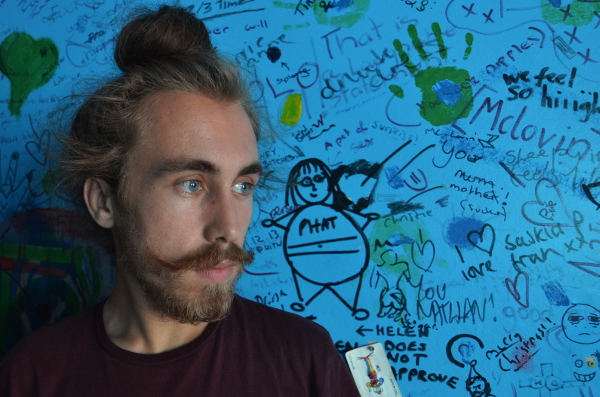
Hi Christie. Thank you for taking the time to do the interview. Where do you live, and what do you do for a living?
I've just taken on a new position as the Technology Supervisor for a company in London with a broad range of services including a recording studio and a Jazz bar. Basically I'm in charge of networks, sound systems, stage lighting and websites. I'm also DJing a couple of times a month at a local bar in Colchester.
What is your musical background?
I started to really play music when I was around 11. Starting with drums and bass guitar, I then taught myself guitar. Bass has always been my main instrument and I'm sad I don't get to play it more often! I played in various bands in my teens, the main one being Kipling.
When I moved away for university to study music composition I started this solo project as a way to explore the ideas I was learning at university such as musique concrete and advanced harmony.
I've always loved music that tries to do something new and I love discovering new music. I can't say there is a genre that doesn't have at least one track I like. Right now I'm DJing a lot of disco and funk because I love the grooves and the syncopation but I also love to keep an eye on the house scene.
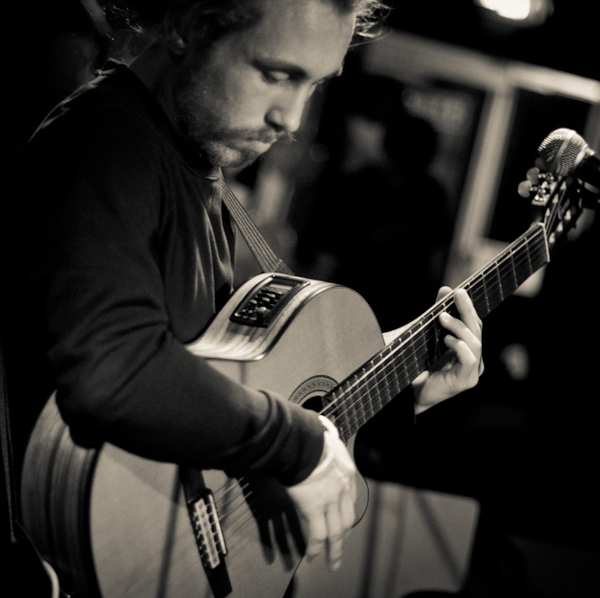
Can you tell us a bit about your music career?
I've been performing live since I was 11. I've counted around 130 shows but I think there are more. Over 60 of those are in the past two years.
I wish I were doing more! My inspirations for my live performances are pretty widespread. I just love it when musicians get really into their music. 65Daysofstatic are probably one of the biggest influences because of their tight and full on shows, which is even more impressive when you realise they're playing in 11/8 or 5/4.
I also play in musicals and stage shows every now and then. It's just great fun.
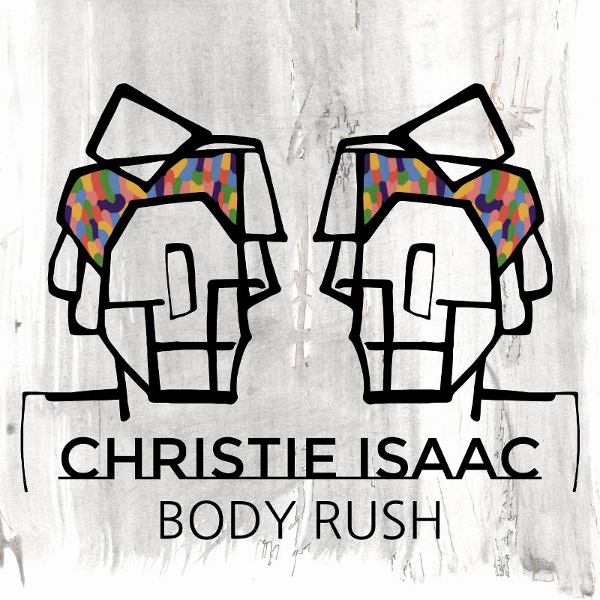
My music is available to download as individual tracks for free via Soundcloud.
Full EPs can be downloaded for free or pay-what-you-want via bandcamp (also some merchandise available).
For those wanting a more mainstream purchasing route, my two latest EPs are available via iTunes, Google Play and Amazon. They are also available to stream on Spotify.
Can you tell us a bit about any other projects you are involved in?
At the moment not a huge amount, I'm concentrating on this project. I run an 80s Pop night called Club Tropicana. I'm in the early stages of starting a new band with a friend taking influences from calypso and math rock.
What is your typical work flow when making music?
My work flow is almost entirely within Ardour. I program drums in hydrogen then record them out to Ardour. If I want samples, I use Renoise (which is not FLOSS but it is a great, reasonably priced piece of software with a welcoming community). I also use Kdenlive for making videos for my music (search Christie Isaac on YouTube).
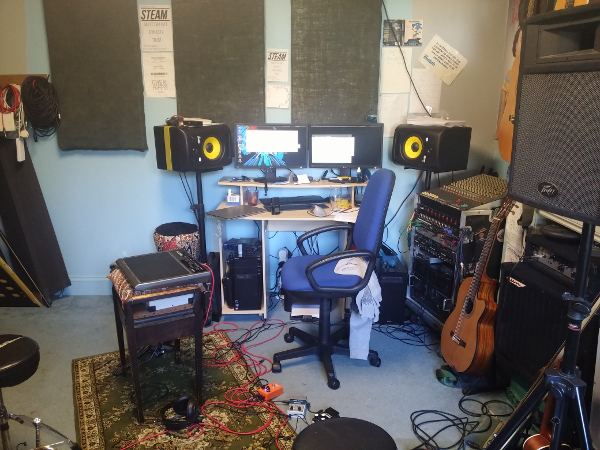
Christie's recording set up for his EP, Body Rush
Tell us a bit about your hardware set up
I have a self-build desktop computer (knocked down to 4GB ram after a recent failure) which is connected to an M-Audio Delta 1010 audio interface. I have an Allen & Heath GL2 mixing desk which feeds into the 1010 and KRK RP8s for monitors.
Overall I'm pretty happy with my set up and especially as I was fortunate enough to be given the mixing desk. I also have an Edirol UA101 8 channel interface which is used for performing my music live to feed backing tracks and click tracks.
What is your set up for live performances?
I have two different live set ups. One is a simple set up: performing with a bassist and saxophonist, I just play flac files straight from my laptop with 4 Hi-Hats at the start of the track to count us in.
The more complex set up is for when we play with a drummer also. There are two laptops on stage, one is connected to the electric drum kit, running Hydrogen (loaded with the drums sounds from the tracks) and using the kit as a controller.
The second laptop is running an Ardour session with four outputs through an Edirol UA-101 interface. The first two outputs are a click track which goes to a headphone amplifier and split to myself and the drummer. Outputs 3&4 send additional backing tracks to the PA system.
I have an Akai MPK Mini connected to Pure Data which converts the MIDI signals to OSC, which is then sent to Ardour to skip between markers and control play and stop, allowing me to easily skip to the next song without touching the computer.
What is your history with Linux?
I'm not gonna lie, when I was younger I used a LOT of stolen software. At one point I had some £15000 of cracked software on my computer and I realised that it was ridiculous, surely there is another way.
My dad has always been interested in computers, I grew up with an Amiga 1200. My uncle gave him a Linux disc (might have been Knoppix?) to try out, this was my first introduction to Linux.
I was largely into modding C&C games at the time, which I couldn't do easily on Linux so at first I wasn't that into it. When I left the modding scene it became a bigger possibility and I started enjoying the command line and the communities around the software.
Eventually I was able to replace all the cracked software I was using with completely free and open source software (I'm not just here for free software though, I appreciate the time, effort and knowledge people put into this software so I donate whenever I can).
When it came to my music, this had a few drawbacks but I've come to realise that these limitations have helped me to shape my music. The Linux audio scene has improved so much in the last couple of years though that they are hardly limitations any more.
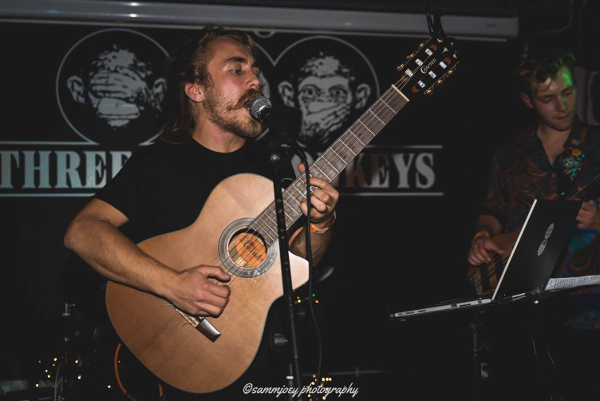
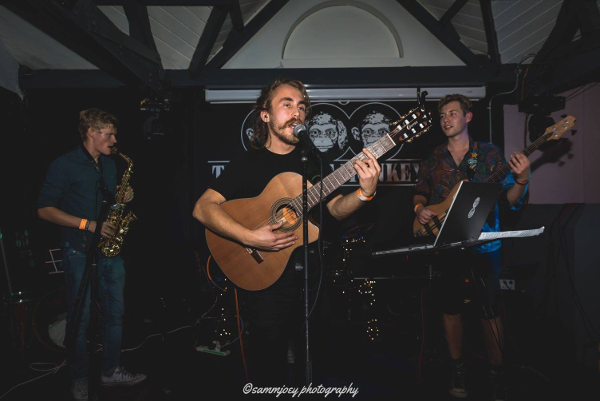
Why do you feel open source is important, and what for you is the most important aspect of Linux audio?
There are many reasons that I believe open source is important: the major ones being freedom, security and community. My computer is my computer, I should be able to do with it what I please as long as I am not breaking the law (well, within reason...). FLOSS software helps me to own my computer and never tries to stop me from doing something.
When it comes to audio this is important because with software such as ProTools, the sessions are in a proprietary format that I can't read… I can't read my own data! So is it really mine? With Ardour everything is in XML. There's been a couple of times where I've had a bad crash or a powercut which has corrupted a session, but it's fine because I can just edit the xml and fix it.
What do you feel is currently lacking in Linux audio?
I believe the main things lacking in Linux audio are advanced plugins and musicians! We have a huge range of really fantastic plugins, but not much that compares to the likes of Waves etc. If we had more musicians, more people would write software for Linux and then it would snowball.
What is your favourite FLOSS plugin?
CALF. They are my go to tool for every effect usually, because I know they are reliable and sound great.
Are there any FLOSS projects that you are excited about at the moment?
I'm very interested to check out the Infamous plugins! The pack has some great plugins that have been missing on Linux.
What changes, if any, would you like to see within the Linux Audio community?
I would just like to see more people get involved! I think Linux is a great platform for musicians because musicians are often curious people that like to tweak things.
What resources have you found most useful on your Linux audio journey?
The Ardour forums are great, there is always somebody who will give you a well-explained answer.
What advice would you give to a new Linux Audio user?
The biggest hurdle left is getting hardware that is supported. The pool of hardware is much larger now but still limited. However, once you've got supported hardware, you're good to go! Never be afraid to ask questions, there is no such thing as a stupid question.
